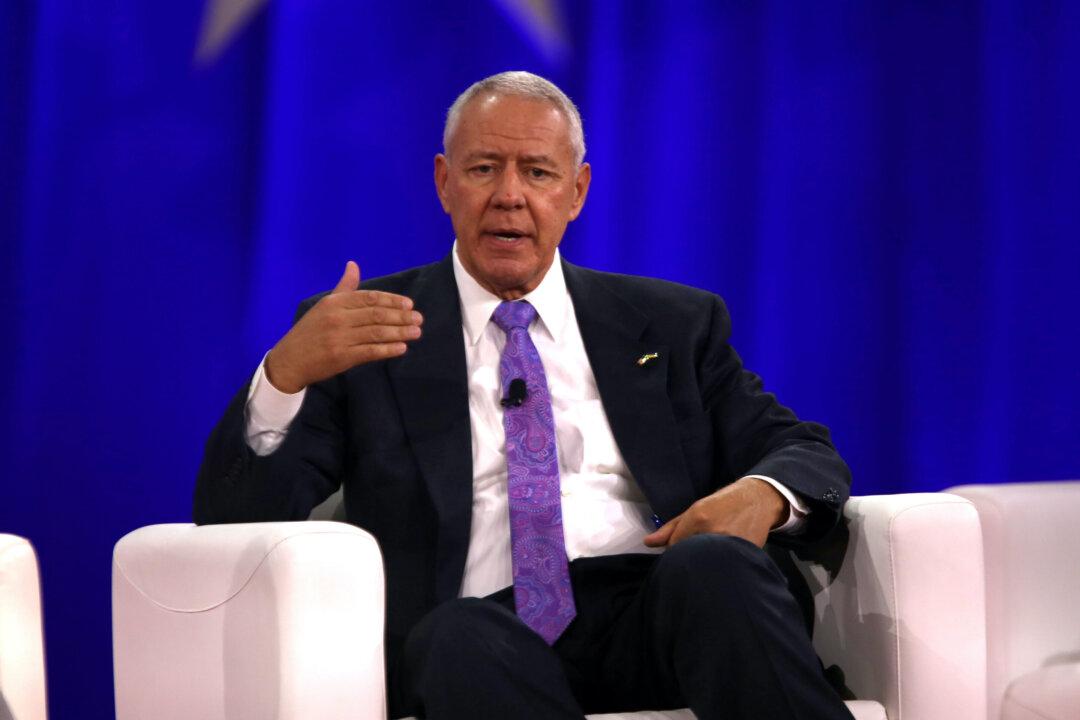The comments dovetail with poll results that show that even President Biden’s supporters are uneasy about the economy, while his economic policies dubbed “Bidenomics” has fallen flat among voters.
“I’m a political independent. I don’t like either Trump or Biden,” David M. Walker, a former Comptroller General of the United States from 1997 to 2008, told The Epoch Times. “But if I was running a campaign for president, clearly it would be the key question that you would want to ask: Are you better off today than you were three years ago?”
And the answer to that question for most people, said Walker, “is definitely, no.”
Experts interviewed by the Epoch Times said that inflation has eroded wages, which has contributed to Americans feeling that they’ve been left behind by the administration’s economic policies.
Despite recent economic gains that are being touted by the Biden administration, including discussion of a “soft landing,” the experts said, the middle class is still feeling easy because they believe something is wrong with President Biden’s economic approach, although they can’t always annunciate it.
That’s because much of the economic gains under the Biden administration have been unevenly distributed to narrow special interests favored by progressives, said some of the experts—and those special interests don’t include middle America.
Peter Morici, Professor Emeritus of International Business at the R.H. Smith School of Business at the University of Maryland, said that President Biden’s spending policies have rewarded the “hard left of the Democrat Party,” such as labor unions, and, what he called the “victimization industry.”
“In just about every policy he does, is aimed at social justice and the unions, and as a consequence, he’s focusing all the benefits of his very large spending on a quarter of the population,” Mr. Morici told The Epoch Times.
Those benefits, he said, have been distributed to progressive special interests through three pieces of legislation that President Biden passed under the Democrat Congress: the American Rescue Act, the infrastructure bill, and the Inflation Reduction Act, totaling $3.3 trillion in new spending.
Rising Prices
A person might not be able to articulate that their standard of living has fallen by a certain number of dollars, but they can tell you that they are worse off and that’s what people are effectively saying in polls, EJ Antoni, a Research Fellow at The Heritage Foundation’s Grover M. Hermann Center for the Federal Budget, told The Epoch Times.
A New York Times poll in November, for example, found that even a majority of voters who supported Biden in 2020, don’t see a thriving economy under the president.
“I think it’s very clear people are demonstrably worse off today than they were two three or four years ago,” Antoni said. “And because of that, they may not be able to put their finger on precisely why that’s the case but they can certainly tell that it is the case.”
Mr. Walker cited several ways that ordinary Americans are worse off under President Biden, including that total inflation during his administration had risen by around 17 percent.
In another example, gas prices, while lower now since their peak, have risen 28 percent since President Biden took office.
Inflation has also caused mortgage interest rates to jump under President Biden, further accelerating income loss for ordinary Americans, according to Walker.
When President Biden was inaugurated, 30-year fixed mortgage interest rates were at 2.77 percent and now stand at 6.61 percent, a difference of 3.84 points, according to data by the St. Louis Federal Reserve Bank.
“Since Biden took office, household debt is risen significantly. So you got more debt and higher interest rates. Federal spending is up 40 percent from pre-COVID levels” which puts more pressure on interest rates to go up, added Mr. Walker.
Even in economic areas where President Biden touts success, Mr. Walker said that the president has simply taken advantage of the windfall created by transitioning from a COVID-19 economy to a non-COVID-19 economy, particularly on jobs and wages.
“The vast majority of the jobs that have been created [under Biden] have been from recovery from COVID-19 They’re not new jobs,” Walker said. “Real wages declined in 2021 and 2022. We’ve returned in 2023 to wage increases, but [wages] are down from when Biden took office.”
Other economists have largely agreed.
Dan Mitchell, a libertarian economist who runs the Center for Freedom and Prosperity, said that whether you look at the Census Bureau’s median household income or whether you look at the Labor Department’s hourly, real wages, those numbers have not been good under President Biden.
“The inflation-adjusted wage numbers are improving,” Mr. Mitchell told The Epoch Times. “But the best thing you can say is that people have finally clawed their way back to where they were when Biden took office.”





